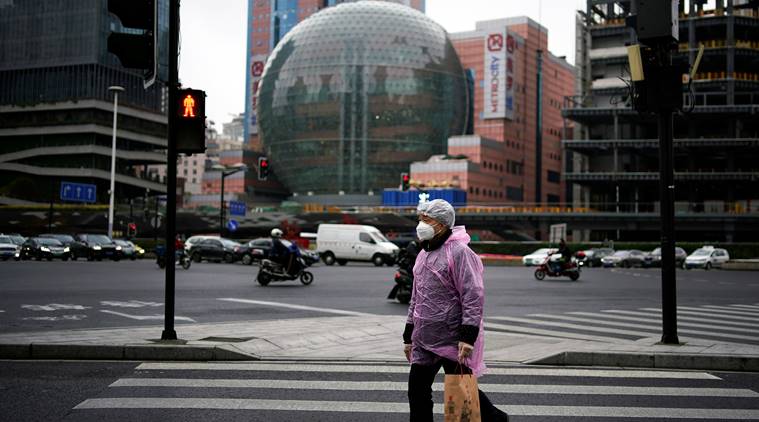 Time out: The streets of Shanghai, China, wear a deserted look (Source: REUTERS/Aly Song)
Time out: The streets of Shanghai, China, wear a deserted look (Source: REUTERS/Aly Song)
Zhou Xin, a 33-year-old teacher in Beijing, ordered takeout over 150 times last year, and only once over the last two months. “We are scared, we can’t trust the people cooking or delivering food,” she says. “So many people are learning to cook for the very first time under quarantine. My social media is flooded with cooking experiments,” she says, laughing.
As China slowly emerges from the grasp of the Covid-19 outbreak, which shut down nearly all outdoor activities, its people have been coping by going online. DJs are livestreaming parties, gym classes and universities are online and Chinese TikTok is bursting with goofy videos. Among them are people, driven by boredom, reading out statistics books to their cats, making masks out of orange peel, dressing up as dragons, playing badminton indoors, and wearing custom-made hazmat suits. In one video, a man is seen distributing cigarettes using chopsticks, and another smoking through surgical masks that go all the way up to his forehead.
Last week, Xin posted a picture on Facebook of herself dressed in a formal shirt, pajama bottoms and slippers, with the cheeky caption that she was ready for online classes. Her class of Chinese teenagers who learn Tamil from her at the Beijing Foreign Studies University have been assigned films like Lipstick Under My Burkha (2016), Monsoon Wedding (2001), Vada Chennai (2018) and Vikram Vedha (2017), which will be discussed on their WeChat group.
She, however, has restricted her screen time and has read 11 books on subjects ranging from gender and the modern transformation of Chinese culture to Japanese folktales, from the Arabic version of the Panchatantra to Rumi’s poems. But the biggest change is in her sleep schedule. “I used to eat lunch at noon but now I am waking up late, and going to sleep late. My son used to be up before 7 am for school and now he wakes up only at 9 am,” she says.
As news of the virus spread across China in late January, Xin, like many of her compatriots, spent a lot of her time on social media, tracking developments. “It went from incessant checking online, driven by panic, to a much more peaceful existence as the weeks have gone by. I play with my son or help him with homework, I focus on my reading or paintings. But doing the same thing every day is very boring,” she says, “Sometimes, when the weather is really nice, we put on masks and go to the park nearby. Before we go anywhere, we check our temperature.”
In a park in Shenyang city in China’s northeast Liaoning province, Shirley, a 38-year-old who works at English training centre, said she strolled around on a cold morning to find an old man playing the saxophone. A video she shot in Baita Park in Shenyang shows people walking around with masks. “We are allowed to go outside anytime in my city because the number of cases are not very high but I stay at home not because I am afraid of the virus but because most restaurants and shopping malls are closed. I have no place to go,” she says.
Her daily routine: Wake up at 7.30 am, do some chores, a bit of exercise, help her son with homework, read a book, watch films. On weekends, she takes online English classes, either one-on-one or a group class where 20 students log in together.
In Luan city in Anhui province, three out of four members of the family wake up only at midday. “My father is the only one who wakes up at 8 am for work that he completes online,” says Aamy, 23-year-old student in Beijing, “My brother keeps playing with his phone or computer, and my mother goes out three times a week to play Mahjong with her friends.” As for her routine, she says, “I wake up only at midday and then scroll through various sites looking for funny videos to watch.” Shirley sums up her current life: “Feels like a long holiday but without going outside. I really miss eating Korean barbeque,” she says.